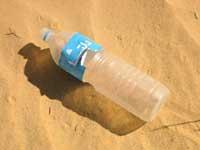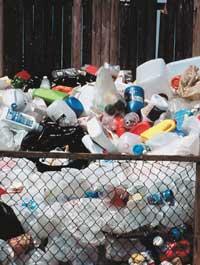Application for biodegradability
2002/12/02 Roa Zubia, Guillermo - Elhuyar Zientzia
Most of the plastics currently used contain polyethylene, polystyrene, or polypropylene. They are synthetic polymers: they are very long molecules that bacteria cannot digest, that is, they are not biodegradable.
The accumulation of these plastics in the garbage generates great problems in most peoples. To address these problems, two solutions are proposed: the implementation of recycling programs and the biodegradation of plastics (polymers).

The biggest problem of biodegradability is the implementation of the process, for which different techniques have been tested. However, these techniques use toxic substances or are costly processes. One solution is to use degradable polymers by bacteria.
In this regard, the chemicals of the National Chemical Laboratory of India have proposed a new synthesis of polymers. In the long chains of these molecules, the idea is to chemically bind monosaccharides or disaccharides. To do this, they add small amounts of glucose and sucrose in the polymerization process. The polymers that form in this synthesis are similar to those obtained in the conventional process, due to the low proportion of sugar units, but the soil bacteria can initiate degradation from these units.
Despite the good idea, scientists should investigate whether the degradation is total, since, if not, it can produce toxic substances such as organic acids and aldehydes.

Gai honi buruzko eduki gehiago
Elhuyarrek garatutako teknologia




